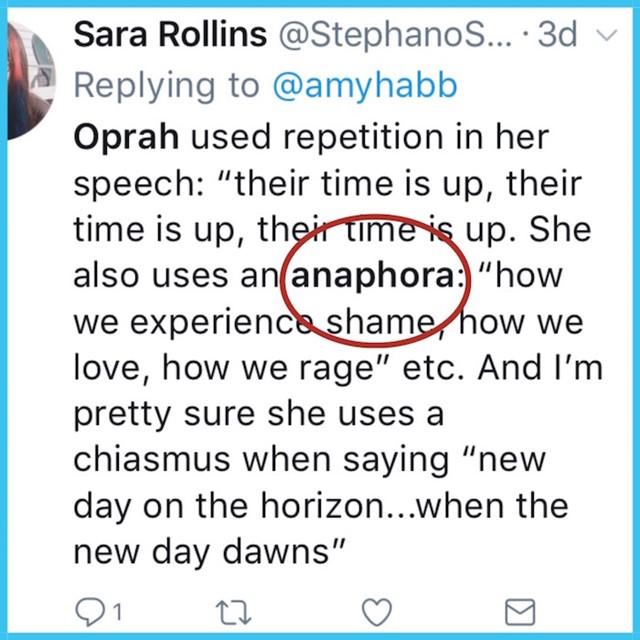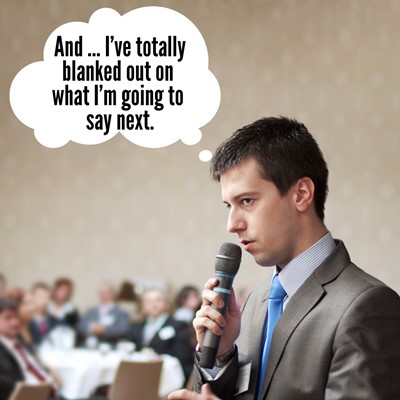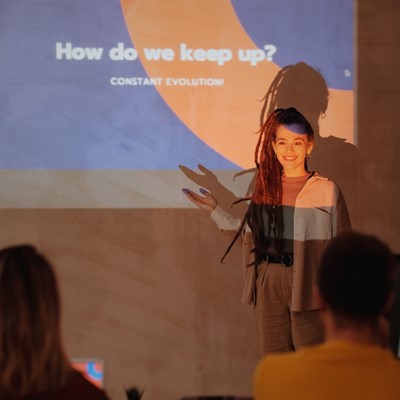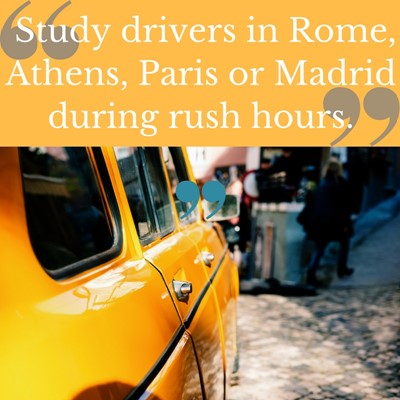
Even when we’re not aware of it, we’re using many of the same rhetorical techniques Aristotle, Cicero, Abraham Lincoln, Frederick Douglass, Winston Churchill, Martin Luther King, Jr. and other greats have employed in public speaking. Each month, our Buckley School resident students of classical rhetoric explain a rhetorical device that can improve your public speaking. (Tweet about Oprah Winfrey's recent speech, above, by @StephanoScripo)
BY JANA DALEY AND JENNY MAXWELL
"One of the most effective ways of making sure someone remembers what you say is to keep repeating it until they can’t get it out of their head."
– Martin Shovel, writing about the use and abuse of anaphora for The Guardian
Anaphora (from the Greek for “carrying back,”) may be the most familiar of rhetorical devices, in no small part because of Dr. Martin Luther King, Jr. and his remarkable “I Have a Dream” speech.
To use anaphora means to repeat the initial words in a series of sentences or phrases.
The famous example from Dr. King’s speech:
I have a dream that one day this nation will rise up and live out the true meaning of its creed: "We hold these truths to be self-evident: that all men are created equal."
I have a dream that one day on the red hills of Georgia the sons of former slaves and the sons of former slave owners will be able to sit down together at a table of brotherhood.
I have a dream that one day even the state of Mississippi, a state, sweltering with the heat of injustice, sweltering with the heat of oppression, will be transformed into an oasis of freedom and justice.
I have a dream that my four little children will one day live in a nation where they will not be judged by the color of their skin but by the content of their character.
You’ll find anaphoric repetition in many other well-known speeches. In our Buckley School programs, students use it to build intensity, to create rhythm, to drive a point home.
And like many a good thing, it's possible to get too much.
Writing about British politicians for The Guardian in 2015, Martin Shovel had this to say:
Discussions of anaphora almost always return to Churchill’s “We shall fight on the beaches” and Martin Luther King’s “I have a dream” speeches; and rightly so, as both represent the gold standard of anaphora in modern oratory. But, as we shall see, it takes more than a liberal squeeze of lemon juice for ordinary mortals to approach the anaphoric heights of a Winston Churchill or Martin Luther King.
Churchill’s famous speech is very long, but he uses anaphora only once. This makes its poetry and imagery sparkle against the backdrop of the rest of the speech, which is written in a conversational prose style. By contrast, present-day politicians, such as David Cameron and Ed Miliband, have a tendency to blunt anaphora’s impact by sprinkling it incontinently throughout a speech.
For a recent look at anaphora that works just right in a speech, see Oprah Winfrey’s remarks at the Golden Globe awards. Here’s one of two uses, where she elevates a list of women through the repetition of "they are":
So I want tonight to express gratitude to all the women who have endured years of abuse and assault because they, like my mother, had children to feed and bills to pay and dreams to pursue. They’re the women whose names we’ll never know. They are domestic workers and farm workers. They are working in factories and they work in restaurants and in academia, and engineering, medicine and science. They are part of the world of tech and politics and in business. They are athletes in the Olympics and they are soldiers in the military.
There was no shortage of post-Golden Globe analysis of Winfrey's speech, along with plenty of talk about the presidential tone she struck. Here's one assessment that delves into the various rhetorical devices at work.
To see her other use of anaphora, check out this transcript or see the video of the entire speech, below:






